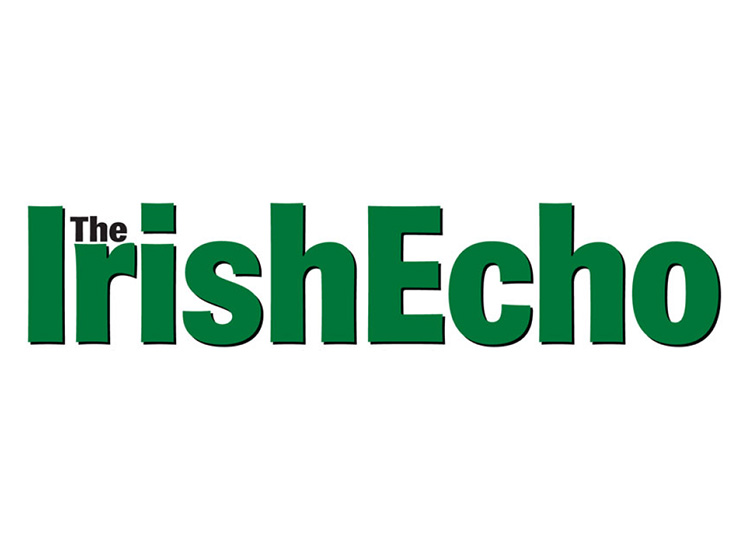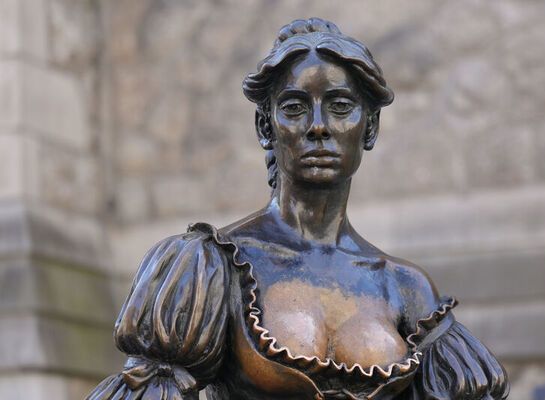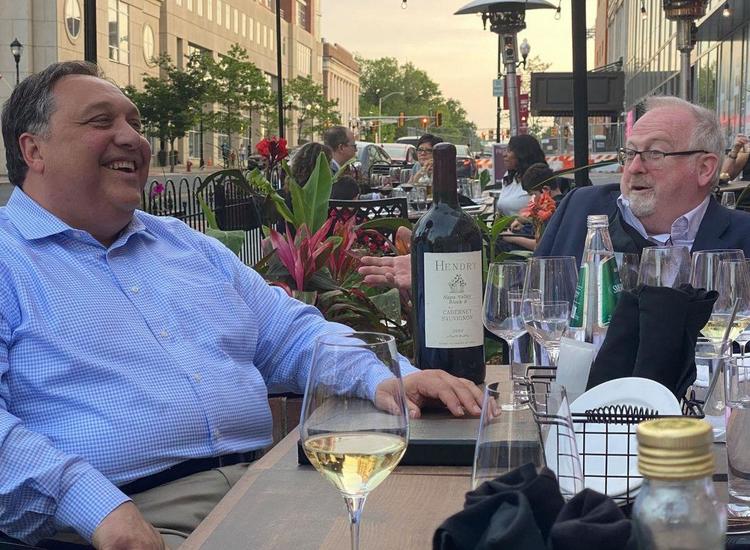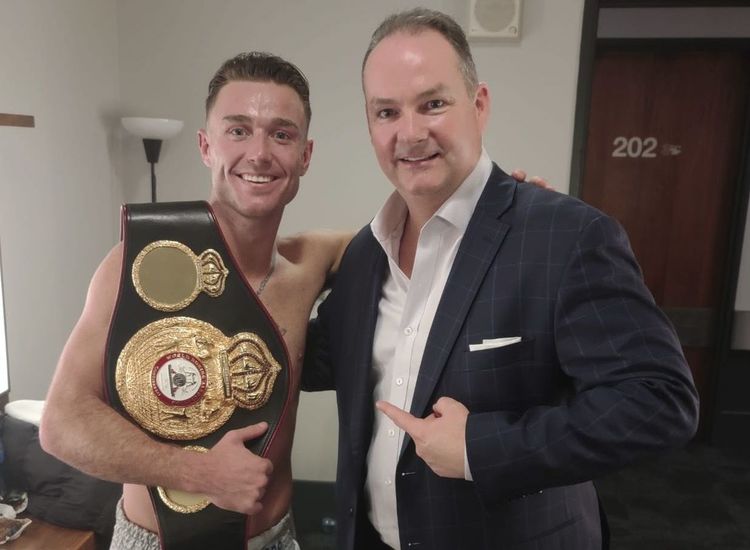"The Eclipse" began as a collaboration with Wexford playwright Billy Roche, whose short story "Table Manners" from his collection "Tales From Rainwater Pond" provided the raw material for the McPherson screenplay. Devised during the unexpected hiatus of a stagehand strike when he was in New York three years ago to direct his play "The Seafarer" on Broadway, McPherson's script locates this tale of the supernatural in the Irish coastal town of Cobh, in County Cork.
Formerly known as Queenstown, Cobh grew from fishing village to formidable port town during the Napoleonic Wars. This brief boom left a legacy of impressive 19th century architecture, followed by a slow decline that suffused it with an atmosphere of genteel decay. Having provided the Titanic with its final port of call, and served as the departure point for thousands of Irish prisoners sent on a one-way voyage to the penal colonies of Australia and Van Diemen's Land, Cobh is well equipped to harbour the unquiet souls of the ill-fated who passed through there.
McPherson uses the Victorian edifices of the town as a brooding backdrop to a crepuscular world redolent of Joyce, in which the shades of those who have gone before pervade the present tense of those still living. Many of the scenes in the film are shot in the dwindling dusk of the Irish midsummer, capturing very effectively the azure tone that lingers til near midnight, a febrile haze in which it is all too easy to imagine otherworldy spirits.
Wandering through this miasma like a lost soul, Ciaran Hinds is so deeply affecting as the forlorn teacher trying to cope with the loss of his wife, that he renders immaterial audience perplexity as to whether his spooky visions are real or not. "The Eclipse" is his strongest performance to date in a stage and screen career spanning almost three decades. Hinds, a Belfast native, is best known on this side of the Atlantic for his role as Gaius Julius Caesar in the acclaimed HBO swords and sandals epic "Rome." He served his apprenticeship as a character actor playing heavies and menacing paramilitaries in Irish and British TV and cinema before finding his niche in costume dramas adapted from the works of Charlotte Bronte and Jane Austen.
Like his compatriots Gabriel Byrne and Liam Neeson, Hinds got his start in cinema in John Boorman's 1981 Arthurian epic, "Excalibur," a film that marked a great leap forward for the Irish film industry and launched the careers of so many future Hollywood stars. The Tribeca Festival award for his performance as the aching, inarticulate widower in "The Eclipse" is well deserved and will guarantee more high-profile lead roles for this unassuming actor.
By contrast, Aidan Quinn brings welcome levity to the film's grim proceedings, providing an entertaining foil to Farr as the insufferable Nicholas Holden, by turns smarmy, paranoid, and drunkenly livid.
McPherson's stage plays have typically explored very masculine environments, and charges of underwriting his female characters are often leveled at him. This film proves to be no exception to the norm. Iben Hjejle, previously impressive opposite John Cusack in the film version of Nick Hornby's "High Fidelity," is given too little to do in "The Eclipse." An ineffectual and charmless character, Lena fails to hold up her corner of the triangle convincingly. But the film belongs to Hinds, and even Aidan Quinn's scenery-chewing romp can't upstage him.








